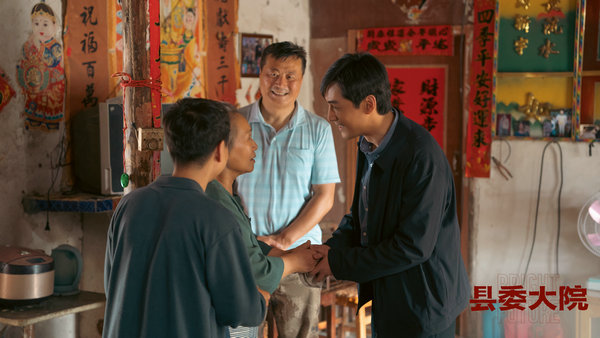TV series delves into life of China's grassroots civil servants

A scene in the hit TV series Bright Future. [Photo provided to China Daily]
With each of its overall 24 episodes reaching a high rating at 1.941 percent, Bright Future, a popular TV series examining the dedication of China's grassroots civil servants, has become the second most watched drama aired on China Media Group, the country's largest broadcaster, in 2022, according to China Television Arts Commission.
Starring A-list actor Hu Ge as a county's governor, the TV series helmed by renowned director Kong Sheng follows the protagonist's effort to lead locals as they face off a series of challenges and build up a promising future, demonstrating the life many different grassroots civil servants working in different fields.
As an effort to pursue reality, the cast and crew's major members travelled to learn how government officials work and live in Feidong county in Hefei, capital of East China's Anhui province. Popularity of the series has propelled the county and similar regions in the province as "new attractions", drawing a lot of tourists, according to Anhui Radio and Television Bureau.
Wang Xiaoqiang, the scriptwriter, recalled during a recent symposium that he had also traveled to Dayu county in Jiangxi province to gain inspiration two years ago.

A still features actor Hu Ge. [Photo provided to China Daily]
Once struggling with how to build the characters and develop plots, Wang said he intentionally put on a white shirt — the dress code for officials — and stood in front of the Dayu county's government building, imaging that he was one of the major characters facing an unknown future and what he should do to solve all the problems.
Currently garnering millions of clicks on the streaming sites including Tencent Video and iQiyi, the drama has also seized the attention of some critics and industry researchers.
Yin Hong, a professor at Tsinghua University, said the drama touches on the country's most basic and complex layer of its governing system in rural areas, unveiling the distinctive "political ecosystem" shaped by tradition and culture in China's counties and towns.